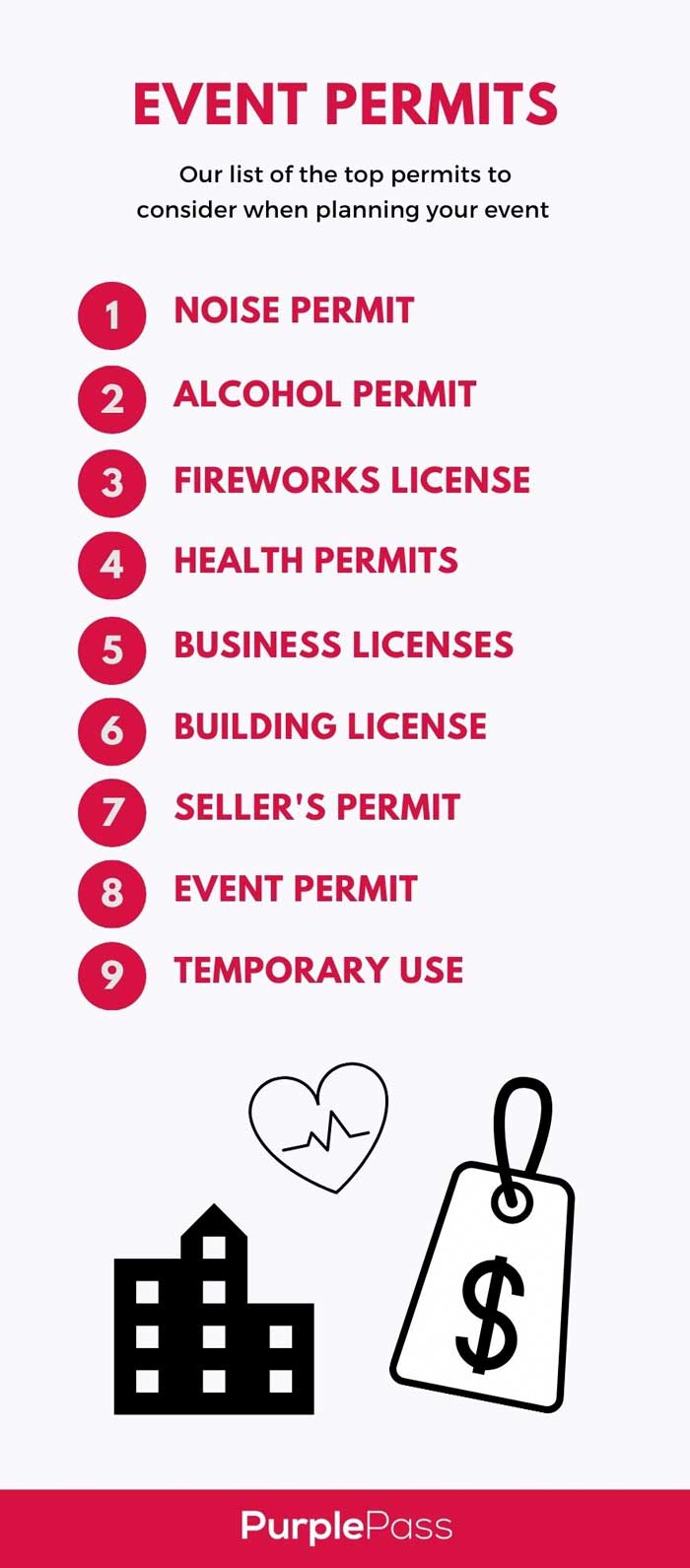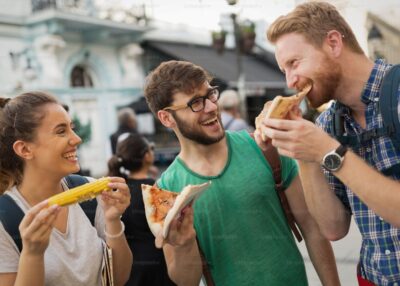How to Get Permits For Your Event (Where to Begin)
One of the most crucial stages in event planning is obtaining the right permits. Whether you’re organizing an indoor or outdoor event, you need to inform local authorities and request permission. Even if you suspect you may not need licenses because of the nature or size of the event, you may want to confirm with the relevant authorities. Otherwise, you risk having all your efforts flushed down the drain and the event canceled last minute.
So, how do you get permits for your event?
There’s no across-the-board answer to this question because the process of obtaining permits differs from one state or region to another. It also depends on the nature of the event you’re planning to hold.
However, some procedures cut across regardless of the region. In this article, we give a general outline and tips that may apply to many events in any state.
1. Don't apply to anything until you do some research
Before you submit your application, you should know the following details:
-
What type of event will you be holding? — Is it a concert, trade show, conference, live music, expo, workshop, or wine tasting event? The type of event determines the type of permits you’ll obtain.
-
Ticket pricing — Will the event be free or ticketed? If ticketed, how much will you charge the attendees, and how will you monitor the sales? Ticket prices sometimes determine the licensing fees.
-
Will you have food or alcohol at the event? — If yes, how will you demonstrate to the authorities that the food or beverages served at your event will be safe for consumption? Will you be selling the foods by yourself, or you’re partnering with third-party vendors?
-
Who will be in charge of the event’s management and ticketing? — In case anybody wants more information, or local authorities want to reach you for clarification, who will they contact? Is the organizer managing the event by themselves, or have you listed the services of an external event management and ticketing company?
-
Location — The state where you’ll hold the event determines the permits you’ll need. Local authorities may also want to know whether the event will be indoors or outdoors. If outdoors, will you be erecting any temporary structures that require licensing?
-
Time — When will the event begin, and how long will it last? Time is critical, especially now that several states have set time limits for events to curb the COVID-19 pandemic.
-
How many people are you expecting? — Depending on the state, you may also be asked to estimate the number of people who’ll attend your event. This helps local authorities plan for logistics, such as security and emergencies.
Other common prerequisites include safety plans, government-issued ID, organizer and affiliate business papers, site and floor plans, timeline, and the event’s purpose.

2. Identify the permits you need
Different events require different permits. An event may require several licenses or none at all, depending on the following factors:
-
Will you have loud music at your event? — If yes, you may need a noise permit. Some towns and cities prohibit events with loud activities between 10 p.m and 7 a.m.
-
Will you serve alcohol to the attendees? — Events with alcohol require an alcohol permit, usually got from local departments of alcoholic beverage control.
-
Will you punctuate your event with fireworks? — Some states prohibit fireworks displays. If you contravene this law, local authorities may slap you with hefty fines or cancel your event altogether. If fireworks are allowed where you want to hold the event, apply for a fireworks license.
-
Will you sell food at the event? — Events with food vendors require health permits. Whether you’ll be selling the foods or beverages by yourself or through third-party vendors, the buck stops with you. You should ensure that all vendors have health permits.
-
Will the event be ticketed or free? — Ticketed events are revenue-generating. And like any other profit-making venture, they require business licenses.
-
Will you erect any structures? — Most events, especially outdoor events, involve putting up temporary structures like tents and podiums. Several states will demand you to acquire a building license and demonstrate how you’ll guarantee the safety of the erected platforms.
3. Apply for the permits on time - making deadlines
Once you’ve identified the different permits that you need and where to apply for them, begin the application process immediately. Some licenses take several days, and sometimes weeks, to be approved.
You may also consider the possibility of your application being denied or returned for more details. So, the earlier you submit your papers, the better.
It gives you ample time to look for alternatives if the initial venue is not approved. We advise that you withhold divulging details about the venue until you’ve obtained all the necessary permits.
4. Confirm permit applications were approved
As we said, permits are essential to any event.
You cannot afford to miss applying for even one. Having all licenses but one is like having none; it can still lead to the cancellation of your event.
Therefore, once you’ve gained all the permits you identified in step two, you may want to schedule an appointment with local authorities or any event organizer from the region to confirm that you haven’t missed any.
5. Review rules and timings
Like any other license, event permits are temporary.
So, even as you rush to apply on time, consider how long the permits last. If you’re holding an event that lasts for three days, for example, apply for a license that covers the three days or more.
Most states allow seasonal event organizers to apply for long-term permits, typically less expensive than onetime licenses.
There you have it—a detailed guide on securing permits for your next event. You might also be interested in reading more about the different permits needed for holding an event in the U.S.






